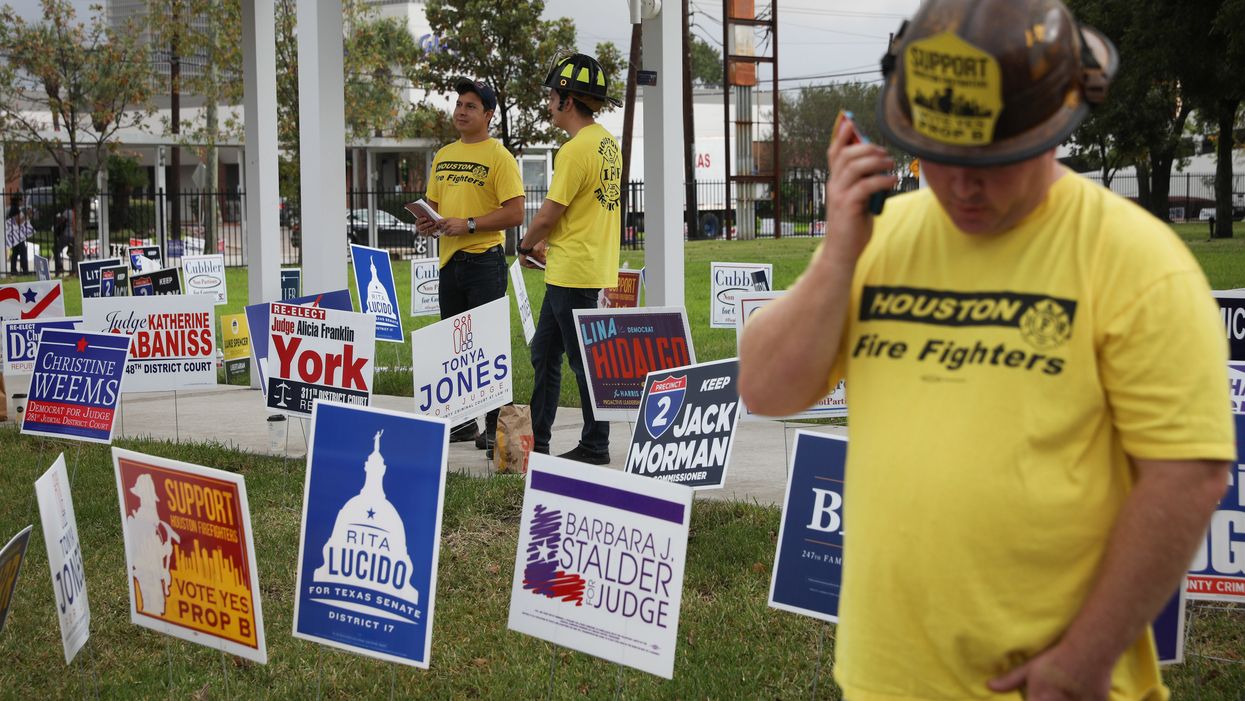Elections in Texas will not be placed under Justice Department supervision, a panel of three federal judges has ruled, despite finding that election maps drawn for the state in 2011 were intentionally discriminatory against black and Latino people.
Texas had been one of the states where any changes in voting processes required federal approval, called "preclearance," because of a history of discriminatory practices. That ended in 2013 when the Supreme Court struck down as unconstitutionally antiquated the system for deciding which places were to be put under federal oversight. However, another part of the Voting Rights Act permits the federal government to impose preclearance requirements for as long as 10 years in places where intentional racial discrimination is found.
The decision, announced Wednesday, said the congressional and state legislative boundaries drawn in 2011 were sufficiently discriminatory for Texas to be placed under supervision. But the judges decided not to impose that sanction, known as "bail-in" — at least not yet.
Judge Xavier Rodriguez wrote for the panel that, when state officials were asked if they would commit to conducting future redistricting proceedings in an "open and fair process," the officials asked how those terms were defined. "That response is disappointing," he wrote.
Rodriguez concluded that no matter what the court had decided this time, redistricting after the 2020 census will face judicial scrutiny — "with the understanding that consideration of bail-in is always an option."
Black and Latino voters, civil rights groups, and Democratic lawmakers had sued to put Texas back under federal supervision right away, alleging racial gerrymandering to dilute the voting heft of voters of color. The case was complicated by the fact that the 2011 maps were somewhat altered two years later as a result of another lawsuit.




















Marco Rubio is the only adult left in the room